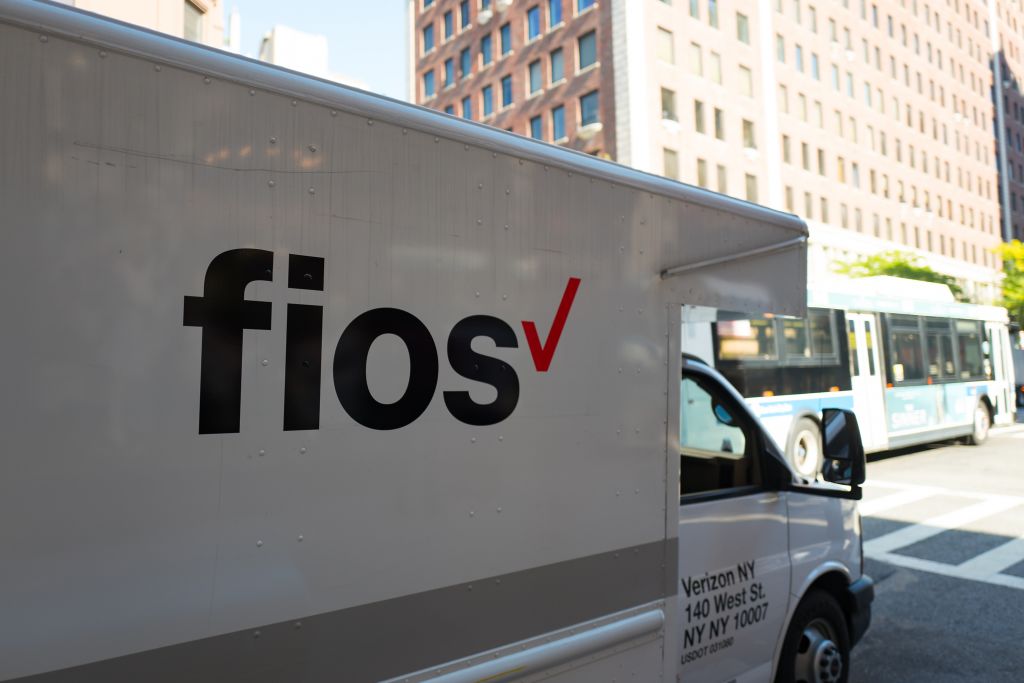Nexstar Stations Go Dark In Fee Dispute With Verizon Fios
3 million subscribers can't watch news, football

The smarter way to stay on top of broadcasting and cable industry. Sign up below
You are now subscribed
Your newsletter sign-up was successful
Nexstar Media Group stations went dark in homes subscribing to Verizon Fios at midnight on Friday as the two companies’ retransmission-consent agreement expired without the sides being able to agree on an extension.
Nexstar said more than 3 million subscribers and 13 of its TV stations serving 10 markets are impacted.
In addition to the stations, Verizon Fios subscribers are also losing Nexstar’s NewsNation cable news channel.
Both sides have been warning subscribers that a blackout was possible.
Also: Fox Reaches Agreement With Altice That Averts Blackout
“Verizon Fios is refusing to reach a new distribution agreement allowing the cable company the right to continue airing the highly-rated programming on Nexstar’s local stations,“ Nexstar said in a statement. “As a result, millions of Americans across the country have lost local news, traffic, weather, sports, and entertainment programming as well as critical, up-to-date news regarding the mid-term elections and possible hurricanes in the South and on the East Coast, as well as college and NFL football this weekend.
“Nexstar has been negotiating tirelessly and in good faith in an attempt to reach a mutually agreeable multiyear contract with Verizon Fios, offering the same fair market rates it offered to other large distribution partners with whom it completed successful negotiations earlier this year,” the broadcaster said. “Nexstar routinely reaches amicable retransmission and carriage agreements with its cable, satellite, and telco partners — in the last three years alone, the company has successfully completed agreements with more than 500 distribution partners.”
The smarter way to stay on top of broadcasting and cable industry. Sign up below
Nexstar, the nation’s largest broadcaster, said it “remains hopeful” that a resolution can be reached quickly.
Markets affected by the blackout include New York; Philadelphia; Providence, Rhode Island; and Buffalo, New York.
Tegna stations were blacked out for just under a week in a separate dispute with Verizon Fios in January.
Earlier this week, Verizon claimed that Nexstar was proposing a 64% rate increase and called that “unreasonable.”
Nexstar insisted it was simply seeking “fair-market rates” for the live sports, local news and entertainment programming it provides.
After the blackout, Verizon said that Nexstar declined an extension in order to continue negotiations, resulting in Fios customers losing channels.
“Unfortunately, Nexstar has a reputation for this type of practice with providers, which ultimately results in viewers losing out on their content,” Verizon said.
“We are disappointed that Nexstar was unwilling to enter into a fair agreement, leaving Verizon customers without access to programming that they value. It’s time for our leaders at the FCC and in Congress to protect consumers by holding them — and other broadcasters who frequently use this tactic — accountable. We will continue to work hard to put our customers first and come to a fair agreement with Nexstar on their behalf.”
The Federal Communications Commission requires broadcasters and cable operators to negotiate in good faith, but has been reluctant to step in at the behest of either side of such impasses when they claim the other side is guilty of bad faith.
Verizon said it “will continue to put customers first and is committed to coming to a fair agreement with Nexstar.” ■
Jon has been business editor of Broadcasting+Cable since 2010. He focuses on revenue-generating activities, including advertising and distribution, as well as executive intrigue and merger and acquisition activity. Just about any story is fair game, if a dollar sign can make its way into the article. Before B+C, Jon covered the industry for TVWeek, Cable World, Electronic Media, Advertising Age and The New York Post. A native New Yorker, Jon is hiding in plain sight in the suburbs of Chicago.

